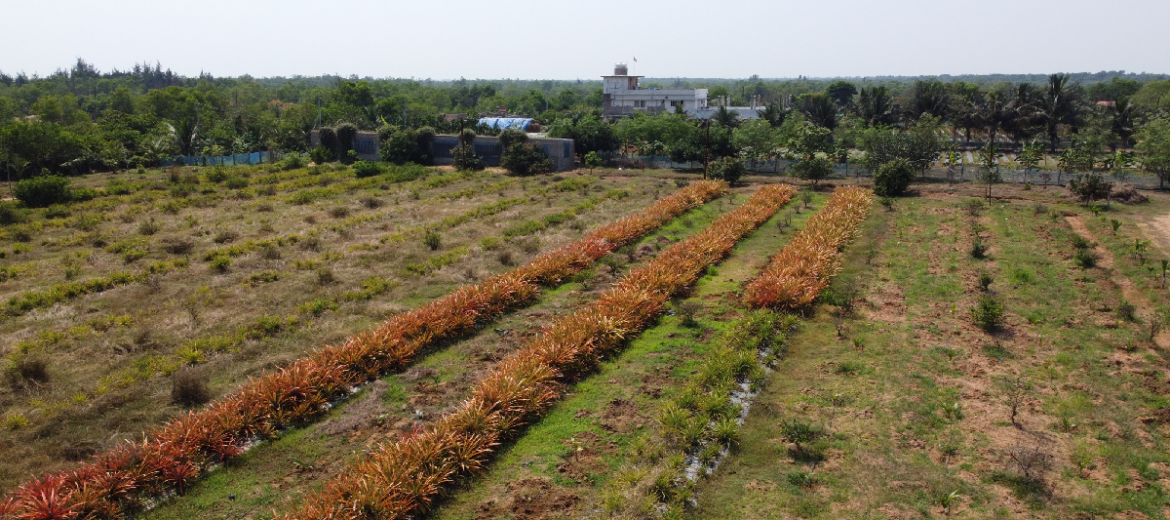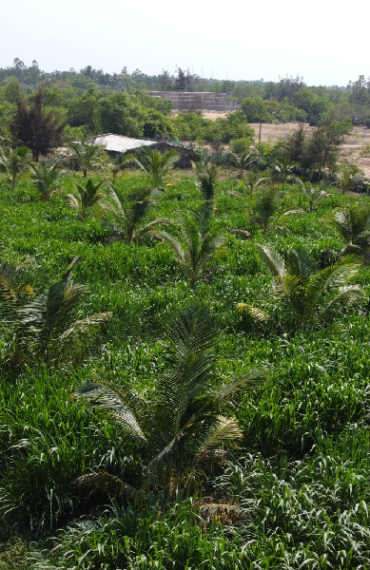
Ecological Farming
Ecological farming, also known as agroecology or sustainable farming, is an approach to agriculture that prioritizes ecological principles, biodiversity conservation, and sustainability. Ecological farming aims to produce food while minimizing environmental impact, promoting biodiversity, and enhancing ecosystem resilience. Here’s an overview of ecological farming and some of the challenges it faces:
Principles of Ecological Farming:
Biodiversity Conservation: Ecological farming seeks to enhance biodiversity within agricultural landscapes by promoting crop diversity, maintaining natural habitats, and supporting beneficial organisms such as pollinators, predators, and soil microbes. Biodiversity contributes to ecosystem resilience, pest and disease control, and soil fertility.
Soil Health: Ecological farming prioritizes soil health and fertility through practices such as organic matter management, cover cropping, crop rotation, and minimal soil disturbance. Healthy soils support nutrient cycling, water retention, and root development, leading to improved crop productivity and resilience to environmental stressors.
Natural Resource Management: Ecological farming emphasizes efficient use of natural resources such as water, energy, and land. Practices such as rainwater harvesting, drip irrigation, and agroforestry maximize water efficiency and minimize environmental impact. Sustainable energy sources, such as solar power and bioenergy, are used to reduce reliance on fossil fuels.
Chemical-Free Pest Management: Ecological farming employs integrated pest management (IPM) strategies to manage pests, diseases, and weeds using natural, biological, and cultural control methods rather than synthetic pesticides and herbicides. This reduces chemical pollution, protects beneficial organisms, and promotes ecosystem balance.
Community and Social Equity: Ecological farming recognizes the importance of social equity, community engagement, and empowerment of small-scale farmers and rural communities. It promotes participatory approaches, knowledge sharing, and capacity building to strengthen local food systems, support livelihoods, and improve food security.
Challenges Facing Ecological Farming:
Transition and Adoption: Transitioning from conventional farming practices to ecological farming methods can be challenging for farmers due to factors such as knowledge gaps, technical expertise, and initial investment costs. Adoption of ecological farming practices may require training, education, and support services to facilitate the transition process.
Market Access and Economic Viability: Ecological farming faces challenges related to market access, consumer demand, and economic viability. Organic and sustainable products may command premium prices in niche markets, but farmers may face barriers such as certification requirements, market competition, and price volatility. Strengthening market linkages, value-added processing, and market diversification can enhance economic viability for ecological farmers.
Policy Support and Institutional Barriers: Ecological farming requires supportive policy frameworks, incentives, and institutional support to facilitate adoption and scale-up. However, policy barriers such as subsidies favoring conventional agriculture, regulatory constraints, and lack of recognition for ecological farming practices may hinder progress. Advocacy efforts are needed to promote policy reforms and create an enabling environment for sustainable agriculture.
Research and Innovation: Ecological farming relies on scientific research, innovation, and knowledge generation to develop and refine sustainable agricultural practices. However, funding for research and extension services may be limited, and mainstream agricultural research often prioritizes conventional, input-intensive approaches. Investing in agroecological research, farmer-led innovation, and participatory research models can address knowledge gaps and support ecological farming.
Climate Change and Environmental Degradation: Ecological farming is vulnerable to the impacts of climate change, including extreme weather events, shifting precipitation patterns, and temperature extremes. Climate variability and environmental degradation can disrupt agricultural ecosystems, reduce yields, and threaten food security. Adaptation strategies such as climate-smart agriculture, agroecosystem resilience, and soil carbon sequestration can help mitigate climate risks and enhance ecological farming resilience.





